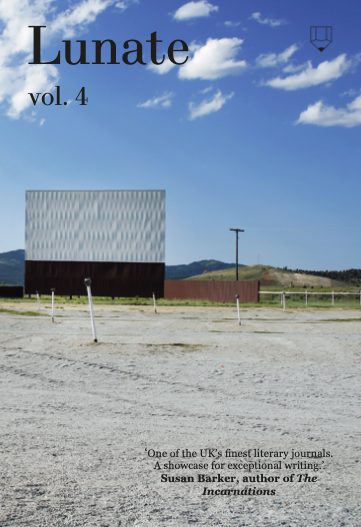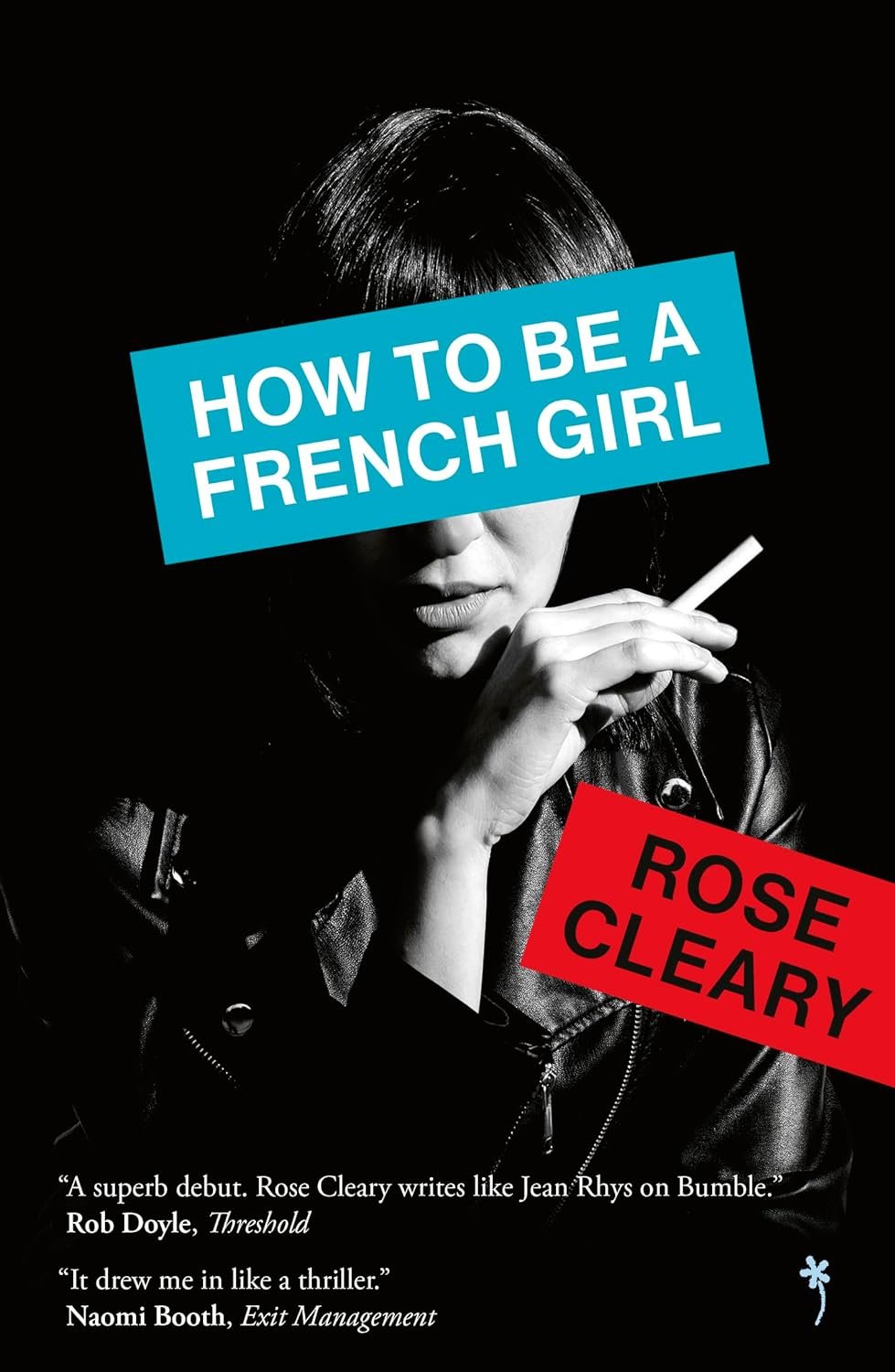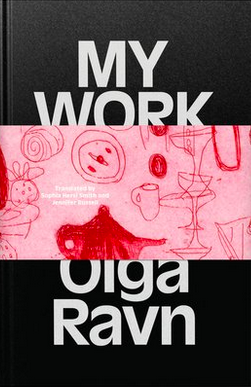Joanna Pocock’s Shelf Life
‘My creative process is pretty chaotic. Ideas, words, phrases, bits of dialogue and situations often come to me in my dreams or on walks. When I get an idea, I have to write it down immediately. Or I lose it.’
Lunate vol. 4
Ships late January. Pre-orders now open.
New stories by Jenn Ashworth, Owen Booth, Ruby Cowling, Brigitte de Valk, Richard V. Hirst, Paul Mulholland and Jack Young
Jade Angeles Fitton’s Shelf Life
‘Sometimes I cut myself off from things I worry will influence me because I want to be original, and then find I’ve written something totally unoriginal. But still, we have to try.’
Terri White’s Shelf Life
‘I’d like my son to grow up in a world where writing, painting and filmmaking aren’t the play things of the upper classes, undeserved luxuries for everyone else. Where inherited wealth and inherited privilege don’t count for quite so much. Where voice, idea, heart, and talent win.’
Richard Smyth’s Shelf Life
‘I don’t worry too much about the sharp end, so to speak, the delivery side, the part where words get typed on to the page (and for me they’re always typed, I never, ever write anything freehand, no notebooks or anything: my work gets done at my desk, and that’s that). And the supply side, the research and development and all that, that, as I said, ticks over quietly in the background, taking stuff in, turning it over and about, mulching it down.’
Gina Rushton’s Shelf Life
‘I love following writers who have chic post-it notes and big wooden desks but nothing about my process is cool or aesthetically satisfying. I wrote my book hunched over my laptop like a prawn.’
Susan Barker’s Shelf Life
‘The Incarnations got the odd hatchet job when it came out, but I honestly don’t remember what they said. Enough time has passed for me to concede the reviewers probably had some valid points.’
FROM THE ARCHIVE Loot by Katie Barron
‘I’m giving away some of my junk and – sneakily, while he’s at school – some of Leo’s bits ‘n’ bobs. Bye, bye, cat scratcher. The cats prefer my armchairs for that.’
Ruby Cowling’s Shelf Life
‘Right now I’m reworking some material I put about five years into and got to a fully polished stage, but which really needs to be something else. I can admit that now, after a couple of years’ cooling-off time.’
The Delivery by Margarita García Robayo (tr. Megan McDowell)
‘From start to finish, The Delivery is a pleasure to read: amusing, deeply thought, reflective of the world as it is, a novel that can speak to many readers on many levels.’
Lucie McKnight Hardy’s Shelf Life
‘I don’t know if I should admit to this in public, but I don’t really like music.’
Jenn Ashworth’s Shelf Life
‘Jenny Diski told me to always remember that my reader is at least as clever as I am. It helped, that, with knowing how to do exposition — what parts of the world or the thoughts of the characters I needed to explain, and which I could leave the reader to figure out.’
The Parenthood Dilemma: Decisions in Our Age of Uncertainty by Gina Rushton
‘What is admirable about The Parenthood Dilemma is that it does not seek to offer universal answers; it is more pointedly concerned with finding a space in which to consider our own questions, and how, perhaps, we might walk a mile in another’s shoes.’
The Poet and the Echo (ed. Tom Conaghan)
‘It’s notable that so many of the ‘respondent’ writers include those who excel in both prose and poetry themselves, making this whole collection less an exercise in translations across forms, and more a showcase of daring and delight — a myriad of conversations between words, meanings, and image.’
How to be a French Girl by Rose Cleary
‘How To Be A French Girl is a funny and provocative look at how certain modes of femininity are packaged and sold, the function of art and the artist today and the extent to which we can ever really escape where we’re from.’
Lara Williams’ Shelf Life
‘I generally have an overarching idea, and a sense of the beats I need to hit, but the bits in between all come through in the writing. I like to chew on an idea for a little while before actually writing anything.’
Motion Sickness by Lynne Tillman
‘A robustly intertextual work (stuffed with repeated references to films, books, paintings, records, held up like touchstones), like all the best visitors Motion Sickness speaks awkwardly and eloquently of its particular time and place in the world’
My Work by Olga Ravn (tr. Sophia Hersi Smith and Jennifer Russell)
‘As necessary and difficult as childbirth itself, My Work marks an important engagement with the past and present of women’s writing’
Keith Ridgway’s Shelf Life
‘With every book I read — even a terrible book — I become a marginally better writer. Or a marginally different writer anyway.’




















